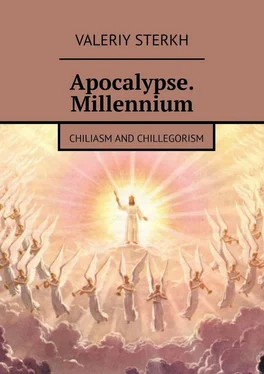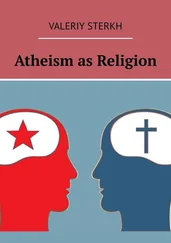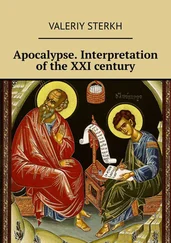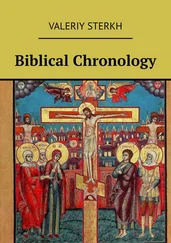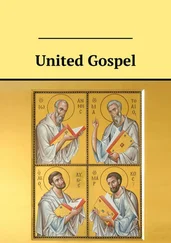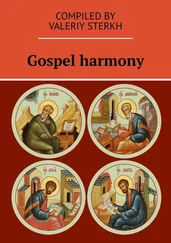Apocalypse. Millennium
Chiliasm and Chillegorism
Valeriy Sterkh
Translator Evgeniy Terekhin
Translator Valeriy Sterkh
© Valeriy Sterkh, 2021
© Evgeniy Terekhin, translation, 2021
© Valeriy Sterkh, translation, 2021
ISBN 978-5-4498-7183-1
Created with Ridero smart publishing system
The verses in John’s Revelation (the Apocalypse) about the millennial reign of Christ together with the righteous are still subject to fierce debate. There are two major lines of interpretation of these verses: literal and figurative. Both (Chiliasm and Chillegorism) are very diverse and have several important distinctions. This paper is only concerned with the major differences. First of all, we will explore the exegetical views that emerged between the 1st and 5th centuries and form the basis for further interpretations.
The book also provides the analysis of Chiliasm and Chillegorism based on some written sources translated for the first time as part of this research.
Review of the 2018 edition
“Apocalypse. Millennium: Chiliasm and Chillegorism” by Valeriy Sterkh draws the reader’s attention to the question which is not fully resolved in the Eastern Christian tradition, and, one might say, has been forgotten. The book gives a detailed analysis of chapter 20 of the last book of the Bible – The Revelation of John – with a primary focus on the Millennial Kingdom of Christ on earth. In keeping with the existing methods of interpretation of this passage, the author differentiates between the two major views – Chiliasm and Chillegorism. The first one is based on the literal rendering of the text in question, and the second one on its figurative (allegorical) interpretation. The term “Chillegorism” is not found in the theological literature; it is the author’s invention to help systematize the concepts related to the Millennial Kingdom. The author considers Judeochiliasm to be a form of Chiliasm, classifying it, from the Christian perspective, as a heresy. Premillenarism is treated as a variant of the dogma of the Holy Fathers and the Church. According to the author, Postmillenarism and Amillenarism are forms of Chillegorism and subspecies of the patristic exegetical tradition.
Section 2 is a brief history of this debate. Section 3 explains some chronological aspects of the teaching about the Millennium. Section 4 is an introduction to the most important texts of the ancient Church writers who held to Chiliasm. It would be a good idea to include here the chiliastic texts of St. Victorinus of Petava, translated from Latin and published by N.A. Handoga. It’s also a good idea to include not only the quotes from the commentary of St. Victorinus on the Apocalypse but also quotes from his treatise “On the Creation of the World”. Another suggestion is to translate the original excerpt from “Chapters against Gaius” by Hippolytus of Rome.
Section 6a is especially interesting because it deals with the biblical texts which allow for a chiliastic interpretation. The author did an excellent job collecting relevant excerpts and interpreting them from the point of view of patristic Chiliasm, presenting the biblical eschatology in a new light. Allowing for such an interpretation, at least in theory, helps the reader to discover new dimensions in Christian eschatology. The events preceding the end of the world appear more epic and more internally coherent than described in most books on dogmatic theology. The end will come not because of the “wearing out” of the world or because it is drowned in evil, but because God’s merciful plan for the earth will come to full fruition.
The chiliastic kingdom of Christ together with the righteous after His second advent looks more like the fulfillment of God’s promises to mankind, sealed in the Bible. It will a temporary era in the history of the earth, a “golden age”, a preparation and transition to the full acceptance by the creation of the eternal Kingdom and logical completion of the earthly history.
The author is not a professional scholar or theologian, and his work does not claim to be scientific research. However, it contains many bold and sound arguments in defense of Chiliasm, based on purely Orthodox insights into biblical and patristic theology. The author notes and demonstrates the weaknesses of chillegorical interpretations of the Millennium in light of the inner logic of the biblical texts in question.
Chiliasm and Chillelgorism serves as an introduction to a wide range of questions related to the millennial Kingdom of Christ. It is remarkable that the author stands up for the unpopular view of the ancient chiliastic writers and attempts to explore their arguments through the lens of the Bible and, partially, theology. An important addition to this book is a compilation “Anthology of Chiliasm and Chillegorism” by Valeriy Sterkh. It lists all the primary sources and the existing commentaries on the Millennium.
Most modern theologians, unfortunately, lack creativity in their approach, yet it can help to organically incorporate the chiliastic interpretation into the context of the Byzantine intellectual tradition and to enrich orthodox eschatology by solving a number of problems related to historiosophy and cosmology.
Gregory Musokhranov, a priest
Note: In subsequent editions, the author followed the suggestion of Father Gregory and included the texts of St. Victorinus and St. Hippolytus.
Millennium (Lat. Mille – one thousand) – a period of one thousand years.
Millenarism or Millenarianism (Lat. millenarius – containing a thousand) is the belief in a coming, literally or figuratively, millennial fundamental transformation of society, after which all things will be changed.
Chiliasm (Greek χιλιας – one thousand) or Millennialism (Lat. mille – one thousand) – a doctrine based on the literal interpretation of the prophecy of Rev 20:1—4 about the millennial reign of Christ together with the righteous.
Chillegorism (Greek. χιλιας – one thousand; αλληγορία – allegory) – a doctrine based on the figurative interpretation of the prophecy of Rev 20:1—4 about the millennial reign of Christ together with the righteous.
Chiliasm is further subdivided into Judeochiliasm and Premillenarism .
Judeochiliasm is a chiliastic doctrine of the Messianic Kingdom which represents the Kingdom in an almost entirely carnal sense, with all sorts of sensual pleasures promised to the followers of the Messiah. As a rule, Judeochiliasm includes the idea of a full restoration of the ceremonial part of the Mosaic law in the Old Testament, that is, of Judaism.
Premillenarism or Premillennialism (Lat. mille – one thousand; “pre” means “before”) – chiliastic teaching placing the Second Coming of Christ before the millennial reign of Christ together with the righteous.
The two types of Chillegorism are Postmillenarism and Amillenarism .
Postmillenarism or Postmillennialism (Lat. mille – one thousand; “post” means “after”) – a type of Chillegorism which teaches that the Second Coming of Christ will occur after the millennial reign of the righteous; the reign here is understood as something already happening or something that will happen in the future. In Postmillenarism, the Millennium is seen as not exactly a 1000 years but as an extended period of some limited duration.
Amillenarism or Amillennialism (Lat. mille – one thousand; “a” is a negation prefix) – a type of Chillegorism which teaches that there will be no millennial reign of the righteous on earth. Amillennarists interpret the thousand years symbolically to refer either to a temporary bliss of souls in heaven before the general resurrection, or to the infinite bliss of the righteous after the general resurrection.
Читать дальше
